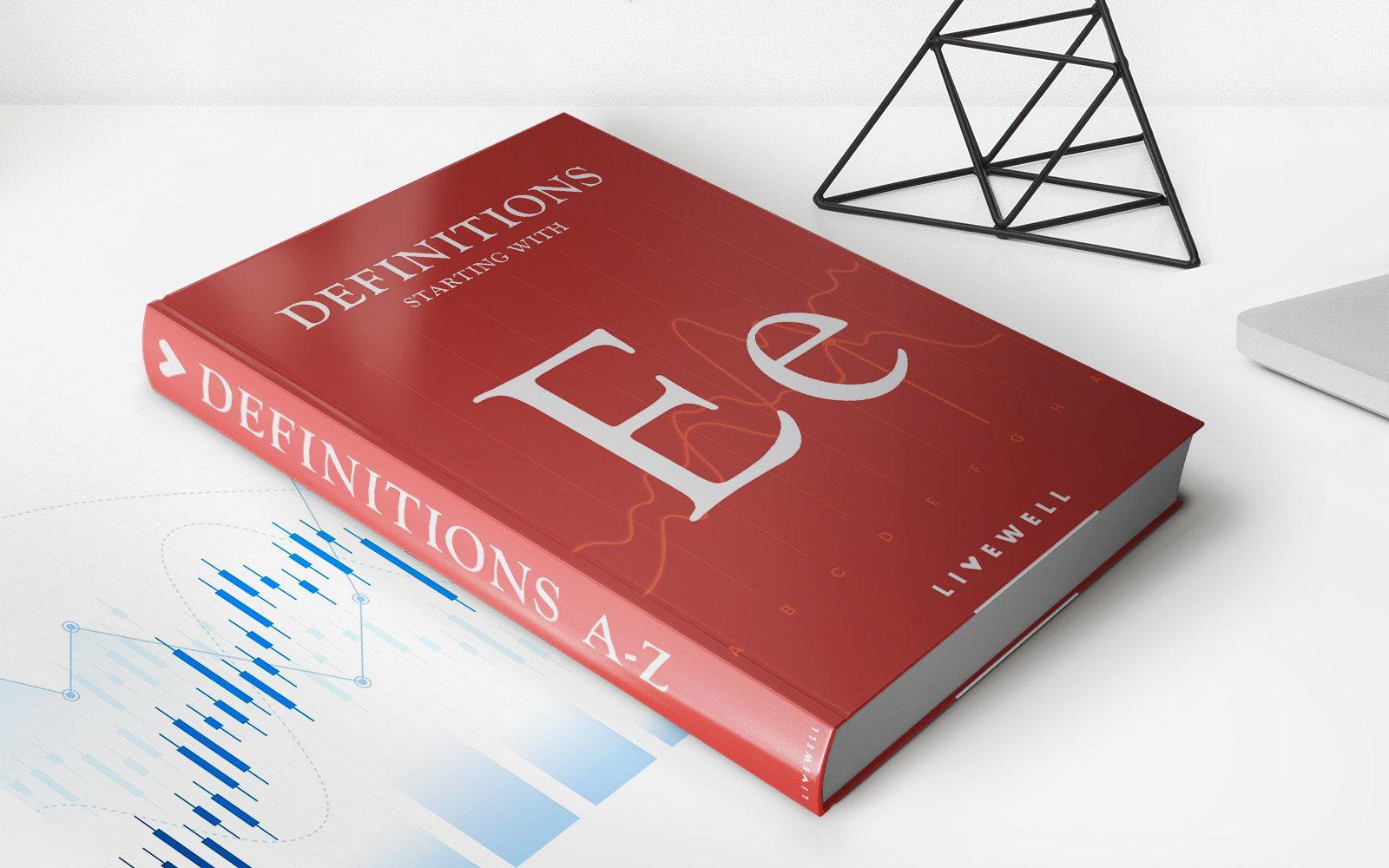

Finance
Why Do You Need Life Insurance In Your 20s?
Published: October 15, 2023
Discover the importance of life insurance in your 20s and how it can provide financial security for the future. Ensure your finances are protected with life insurance.
(Many of the links in this article redirect to a specific reviewed product. Your purchase of these products through affiliate links helps to generate commission for LiveWell, at no extra cost. Learn more)
Table of Contents
Introduction
Welcome to your 20s, an exciting and transformative time in life where you’re beginning to establish your financial independence. But have you considered the importance of life insurance at this stage? While it may seem like a distant concern, obtaining life insurance in your 20s can offer crucial financial protection and establish a solid foundation for your future.
Life insurance is a contract between you and the insurance company, providing a death benefit to your beneficiaries in exchange for regular premium payments. While the thought of planning for the end of your life may be uncomfortable, it’s an essential consideration to ensure your loved ones are taken care of in the event of your untimely passing.
In this article, we’ll delve into the various reasons why life insurance is crucial in your 20s and how it can provide financial security for both you and your loved ones. From offering long-term financial planning to covering student loans and protecting business partnerships, life insurance sets the stage for a prosperous future.
So, let’s explore the importance of life insurance during this pivotal stage of life and understand why it should be a top priority for you in your 20s.
Financial Protection for Loved Ones
One of the primary reasons to consider life insurance in your 20s is to provide financial protection for your loved ones. While you may not have significant financial responsibilities yet, it’s important to prepare for the unexpected and ensure that those who depend on you are financially secure in case of your passing.
By obtaining life insurance, you can ensure that your family, spouse, or children will be able to cover their daily living expenses, such as mortgage payments, utility bills, and education costs, even in your absence. It offers peace of mind, knowing that your loved ones won’t face financial hardships during an already difficult time.
Additionally, life insurance can provide a financial cushion to help your family handle any outstanding debts you may leave behind, such as credit card debt, student loans, or car loans. Without life insurance, your loved ones could be burdened with these financial obligations and struggle to maintain their standard of living.
When considering life insurance, it’s important to determine the appropriate coverage amount that will adequately protect your loved ones. Factors to consider include your current and future financial obligations, such as your yearly income, outstanding debts, and future expenses like college tuition or childcare costs. Consulting with a financial advisor can help you determine the right coverage amount for your specific circumstances.
By investing in life insurance at a young age, you can often secure lower premium rates due to your good health and lower risk of developing health conditions. This means you can provide substantial coverage for your loved ones at a more affordable cost compared to obtaining life insurance later in life.
Overall, obtaining life insurance in your 20s is a proactive step towards safeguarding the financial well-being of your loved ones. It ensures that they are taken care of and can maintain their quality of life in the event of your unexpected passing.
Long-term Financial Planning
Life insurance in your 20s is not only about providing protection for your loved ones; it also serves as a crucial component of long-term financial planning. By starting at a young age, you can take advantage of the benefits that life insurance offers in terms of investment and wealth accumulation.
One significant advantage of life insurance is that certain policies, such as whole life or universal life insurance, can build cash value over time. This means that a portion of your premium payments is set aside and grows tax-deferred with potential for investment earnings. As the cash value grows, you may have the option to borrow against it or even use it as a source of funds for future financial goals.
By incorporating life insurance into your long-term financial plan, you have the opportunity to accumulate wealth and have a financial safety net simultaneously. It enables you to plan for major life events like buying a home, starting a business, or even funding your retirement. The cash value of your life insurance policy can provide you with a valuable asset that can be tapped into when needed.
Furthermore, purchasing life insurance at a young age can ensure that you lock in lower premium rates for the duration of the policy. As you age, your risk factors increase, and securing affordable life insurance becomes more challenging. By starting early, you can secure a policy with lower premiums that remain constant over time, providing financial stability and predictability.
It’s important to remember that life insurance is not solely a tool for financial protection, but also a valuable asset for long-term financial planning. By strategically incorporating life insurance into your overall financial strategy, you can build wealth, secure your financial future, and have the flexibility to meet your goals and aspirations.
Affordable Premiums
One of the key advantages of obtaining life insurance in your 20s is the opportunity to secure affordable premium rates. Premiums for life insurance are typically based on factors such as age, health, and lifestyle choices, with younger individuals generally benefiting from lower rates due to their lower risk profile.
When you purchase life insurance at a younger age, you’re generally healthier and less likely to have developed any significant health conditions. This translates into lower perceived risk for insurance companies, resulting in lower premium rates. By locking in these lower rates early on, you can enjoy the financial benefits of affordable premiums over the life of your policy.
Additionally, as you age, you may become more susceptible to health issues or life events that could impact your insurability. Unforeseen circumstances such as the diagnosis of an illness or the onset of a hereditary condition can make it difficult to obtain life insurance or result in significantly higher premiums. By securing life insurance in your 20s, you’re taking a proactive step to protect your future insurability and ensure that coverage remains accessible and affordable.
Furthermore, getting life insurance at a younger age allows you to take advantage of term life insurance policies. Term policies provide coverage for a specific period, such as 10, 20, or 30 years, at a fixed premium rate. These policies are often more affordable than permanent life insurance options and can provide adequate coverage during critical years, such as when you have financial dependents, outstanding debts, or significant financial obligations.
In summary, by obtaining life insurance in your 20s, you can benefit from affordable premium rates due to your young age and good health. Taking advantage of these lower premiums early on allows you to secure financial protection at a budget-friendly cost and ensures that you’re well-prepared for the future.
Building Cash Value
One of the unique features of certain life insurance policies, such as whole life or universal life insurance, is the ability to build cash value over time. As you make premium payments, a portion of the money is set aside and accumulates within the policy, creating a cash value component.
The cash value of a life insurance policy grows tax-deferred, meaning you won’t have to pay taxes on the growth as long as it remains within the policy. This can provide significant advantages for your long-term financial goals. The cash value can be accessed in various ways, providing flexibility and opportunities for wealth accumulation.
One option is to borrow against the cash value of the policy. This can be advantageous when you need funds for major expenses, such as buying a home, funding a business venture, or paying for education. Since you are borrowing against your own cash value, there’s no need to go through a traditional loan application process, and the interest rates are usually lower compared to other forms of borrowing.
Another option is to surrender the policy and receive the accumulated cash value. While this may not be the ideal choice for everyone, it can be a valuable source of funds in certain circumstances. It’s important to carefully consider the financial implications and potential tax consequences before surrendering a policy.
By starting a life insurance policy in your 20s, you have the advantage of time for the cash value to grow. The longer you hold the policy and continue making premium payments, the more substantial the cash value becomes. This can provide a solid financial foundation for future goals and aspirations, such as retirement planning or leaving a legacy for your loved ones.
It’s important to note that building cash value is a feature of certain types of permanent life insurance policies and not applicable to all life insurance options. If building cash value is an important consideration for you, it’s recommended to consult with a financial advisor or insurance professional to explore the available options and determine the best policy for your specific needs and financial objectives.
Covering Student Loans
As a young adult in your 20s, you may have recently completed your education or are still pursuing higher education. Student loans have become a common financial burden for many individuals, and obtaining life insurance can help alleviate the stress and potential financial strain associated with this debt.
Unfortunately, in the event of your untimely passing, your student loan debt does not disappear. It can become a significant financial burden for your family and loved ones to bear. However, by having life insurance coverage, you can ensure that your loved ones won’t be burdened with this debt in case something happens to you.
Life insurance can provide a financial safety net to help your loved ones pay off your outstanding student loan balance. The death benefit provided by your policy can be used to settle your student loan obligations, alleviating the financial burden and allowing your family to move forward without the added stress of this debt.
Moreover, the death benefit from a life insurance policy is generally paid out to your beneficiaries tax-free. This means that the full amount can be used to pay off your student loans, ensuring that every dollar goes towards eliminating the debt without any tax implications.
By securing life insurance in your 20s, you have the opportunity to protect your loved ones from inheriting your student loan debt and give them the financial resources to start anew. It’s crucial to consider the total amount of your student loans when determining the appropriate coverage amount for your life insurance policy. Taking into account your current loan balance, future interest, and any other outstanding debts will allow you to adequately cover these financial obligations.
With life insurance coverage, you can have peace of mind knowing that your student loan debt won’t become a burden for your loved ones. It ensures that they will have the resources to settle your debts, focus on their own financial well-being, and continue building their own future without the weight of student loan repayments.
Marriage and Family Planning
Entering into marriage and starting a family are significant milestones in life, and it’s essential to consider the financial implications that come with these new responsibilities. Life insurance plays a crucial role in providing financial protection and stability for your spouse and future children.
When you get married, you and your spouse become a team, sharing both the joys and the financial burdens of life. In the event of your passing, your spouse may need financial support to cover daily living expenses, mortgage or rent payments, and other financial obligations. Life insurance ensures that they are financially secure and can maintain their standard of living, even if you’re no longer there to provide for them.
Similarly, starting a family comes with additional financial responsibilities. From the cost of raising children to education expenses, life insurance offers a safety net to support your growing family. The death benefit from your policy can provide funds to cover childcare costs, education expenses, and other unforeseen financial needs.
Moreover, life insurance can play a crucial role in securing your children’s future. By naming them as beneficiaries, you can ensure that they are financially protected and have the means to pursue their dreams and aspirations, even if you’re not there to support them financially.
Life insurance can also provide valuable support in the event of the death of a stay-at-home spouse. While they may not have a traditional income, their contributions to the household are invaluable. Life insurance can provide the financial resources necessary to cover the cost of childcare or enable the surviving partner to take time off work to adjust and care for the family.
When considering life insurance for marriage and family planning, it’s important to review and update your policy as your circumstances change. You may need to increase your coverage to account for additional financial responsibilities or changes in your lifestyle. Consulting with a financial advisor or insurance professional can help ensure that you have adequate coverage tailored to your specific needs and goals.
Life insurance in your 20s provides the foundation for protecting your loved ones and planning for a prosperous future together. It offers peace of mind and financial stability, allowing you to focus on creating a life filled with happiness and security for you and your family.
Business Partnership and Loan Protection
If you’re a young entrepreneur or planning to start a business partnership in your 20s, life insurance can play a crucial role in protecting your business interests and ensuring the financial security of your partners.
When entering into a business partnership, it’s essential to consider what would happen in the event of the death of a partner. Losing a partner can have significant financial implications for the business, especially if their expertise or financial contributions are integral to its success. Life insurance can help mitigate these risks by providing funds to buy out the deceased partner’s share of the business from their estate. This ensures that the surviving partner(s) can continue operating the business without financial strain and maintain its stability.
Life insurance can also serve as collateral for business loans. As a young entrepreneur, you may need to secure loans to fund business operations, expand your venture, or invest in new opportunities. Lenders often require collateral to secure these loans, and life insurance can play a vital role in meeting this requirement. By assigning your life insurance policy as collateral, you can protect your business assets and improve your chances of securing the necessary funding.
Additionally, life insurance can provide valuable protection for any personal guarantees you may have made for business loans. If something were to happen to you, your loved ones could be burdened with the responsibility of repaying those loans. However, with life insurance coverage, the death benefit can be used to settle these liabilities, ensuring that your family is not left with the financial strain of managing business debts.
When considering life insurance for business partnership and loan protection, it’s crucial to evaluate the coverage amount based on the financial value of the business and the potential impact of the loss of a partner. Consulting with a financial advisor or insurance professional with expertise in business insurance can help you determine the appropriate coverage to safeguard your business interests.
Life insurance provides a safety net for young entrepreneurs and business partners, offering financial protection and stability for the business and its stakeholders. By incorporating life insurance into your business planning, you can have peace of mind knowing that your business interests and financial obligations are protected, even in the face of unexpected circumstances.
Final Thoughts
As you navigate through your 20s, it’s crucial to consider the importance of life insurance and its impact on your financial well-being and the well-being of your loved ones. Life insurance offers a range of benefits, from providing financial protection for your family to serving as a key component of long-term financial planning.
By obtaining life insurance at a young age, you can take advantage of affordable premium rates, often due to your good health and low-risk profile. This can provide significant cost savings over the life of your policy, ensuring that you have comprehensive coverage without breaking the bank.
Life insurance also allows you to build cash value over time, providing a financial asset that can be tapped into for major milestones or financial goals. This can further enhance your long-term financial planning strategy and provide you with flexibility and opportunities for wealth accumulation.
Whether you have student loans, a spouse and dependents, or business partnerships, life insurance can offer the financial protection and peace of mind needed to navigate through life’s uncertainties. It ensures that your loved ones are taken care of and can maintain their quality of life even in your absence. Moreover, it can safeguard your business interests, protect your partners, and provide loan protection to secure the future of your ventures.
While life insurance may not be top of mind in your 20s, it is a decision that can have a significant impact on your financial security and the well-being of those who depend on you. Take the time to evaluate your needs and explore the options available to you. Consulting with a financial advisor or an insurance professional can help guide you in making an informed decision that aligns with your goals and aspirations.
Remember, life insurance is not just about planning for the end; it’s about embracing the present and securing your future. It’s an investment in the well-being of your loved ones and an essential step towards achieving financial stability and peace of mind. So don’t delay, start considering life insurance in your 20s and lay the foundation for a prosperous and secure future.














